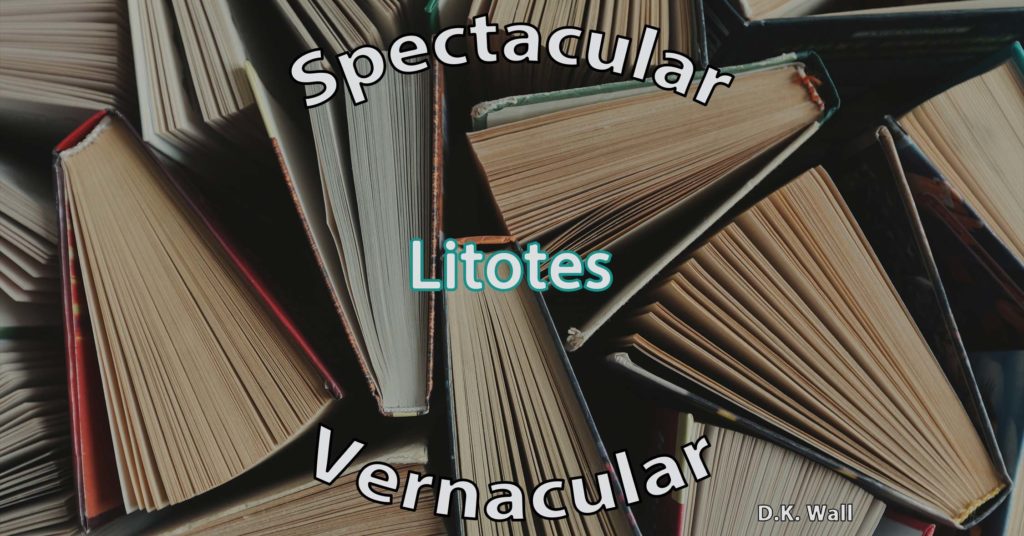Share This Spectacular Vernacular
You may not know this week’s vocabulary word, litotes, but the literary device is not uncommon.
A quick note on pronunciation. This is a three syllable word, with the emphasis on the first syllable. LIE-tuh-teez.
See? That wasn’t hard. And, yes, that was the second usage of litotes. That wasn’t hard is interpreted as that’s easy. To say something is not uncommon means it’s common.
Litotes refers to an understatement in which an affirmative is expressed by the negative of the contrary. Someone expresses a good suggestion and the listener might nod and respond, “That’s not a bad idea.”
The challenge with using litotes is that not all negatives achieve the same message. If you say, “I’m not hungry,” that will be heard as you aren’t hungry. But if you say, “I’m not starving,” that is interpreted as you are hungry.
And the context is important, too. If you are listening to a Beethoven symphony and say, “That’s not Mozart,” it’s simply a statement of fact. But if you heard me attempt to play a piano, the comment, “That’s not Mozart” would be a drastic understatement.
By the way, the etymology on this one is simple. Seriously. It comes from the Greek litotēs meaning plain or simple.
See. That wasn’t difficult.

